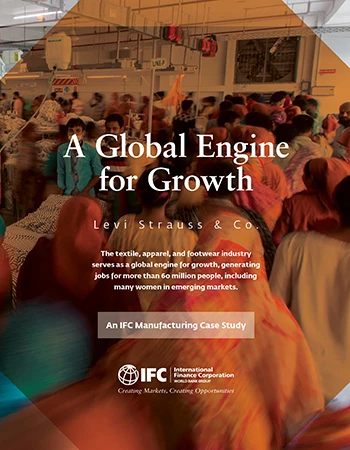The textile, apparel, and footwear industry serves as a global engine for growth, generating jobs for more than 60 million people, including many women in emerging markets. But the sector can exact a heavy toll on the environment. Both cotton growing and dyeing use large amounts of water, while the production of synthetic fibers such as polyester generates high levels of greenhouse gases. Globally, the textile industry accounts for up to 8 percent of greenhouse gas emissions and is a major source of industrial water pollution from the treatment and dyeing of textiles.
A Global Engine for Growth
Levi Strauss & Co. | An IFC Manufacturing Case Study
As one of the world’s largest brand-name apparel companies, Levi Strauss & Co., known as LS&Co., has a significant impact on environmental and labor conditions around the world. Besides its 14,000-plus employees worldwide, it contracts out production of its jeans, casual wear, and accessories to independent manufacturers in some 30 countries employing 300,000 workers. It has adopted new technologies and production methods that limit pollution, energy and water use, partnering with IFC to help meet its ambitious global sustainability goals.
